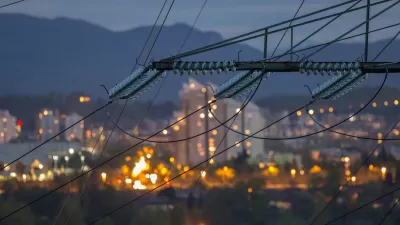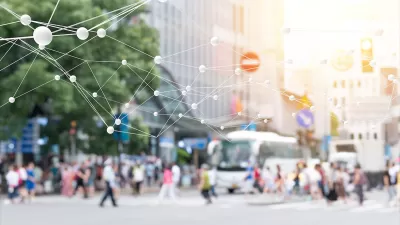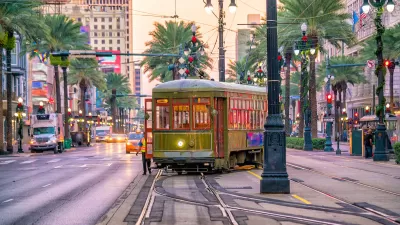Machine learning and AI can transform the way transit agencies operate and make service faster and more comfortable for users.

In a piece for RT Insights, Syed Mansoor Pasha outlines the various ways artificial intelligence and machine learning are transforming public transit and helping transit agencies better understand their riders’ needs and how to provide more efficient service.
According to Pasha, “This technological leap is enabling public transit systems to adapt intelligently to individual preferences and real-time demands, heralding a new era of dynamic and responsive transportation.” In London, Project Luna uses AI to provide transit information to people with hearing impairments, offering digital information in British Sign Language.
Using AI, agencies can perform more accurate passenger counting so they can effectively manage their fleet and staffing. AI can also help detect anomalies in system operations more quickly.
As Pasha points out, “The backbone of these AI technologies in public transit is onboard internet connectivity, which facilitates real-time data transfer and enables seamless communication both within the vehicle and to and from the cloud.” On-board connectivity can reduce the amount of energy needed to process data and essentially turn trains into “rolling data centers.”
FULL STORY: Transforming Public Transit with AI and Machine Learning

Planetizen Federal Action Tracker
A weekly monitor of how Trump’s orders and actions are impacting planners and planning in America.

Congressman Proposes Bill to Rename DC Metro “Trump Train”
The Make Autorail Great Again Act would withhold federal funding to the system until the Washington Metropolitan Area Transit Authority (WMATA), rebrands as the Washington Metropolitan Authority for Greater Access (WMAGA).

The Simple Legislative Tool Transforming Vacant Downtowns
In California, Michigan and Georgia, an easy win is bringing dollars — and delight — back to city centers.

The States Losing Rural Delivery Rooms at an Alarming Pace
In some states, as few as 9% of rural hospitals still deliver babies. As a result, rising pre-term births, no adequate pre-term care and "harrowing" close calls are a growing reality.

The Small South Asian Republic Going all in on EVs
Thanks to one simple policy change less than five years ago, 65% of new cars in this Himalayan country are now electric.

DC Backpedals on Bike Lane Protection, Swaps Barriers for Paint
Citing aesthetic concerns, the city is removing the concrete barriers and flexposts that once separated Arizona Avenue cyclists from motor vehicles.
Urban Design for Planners 1: Software Tools
This six-course series explores essential urban design concepts using open source software and equips planners with the tools they need to participate fully in the urban design process.
Planning for Universal Design
Learn the tools for implementing Universal Design in planning regulations.
Smith Gee Studio
City of Charlotte
City of Camden Redevelopment Agency
City of Astoria
Transportation Research & Education Center (TREC) at Portland State University
US High Speed Rail Association
City of Camden Redevelopment Agency
Municipality of Princeton (NJ)





























